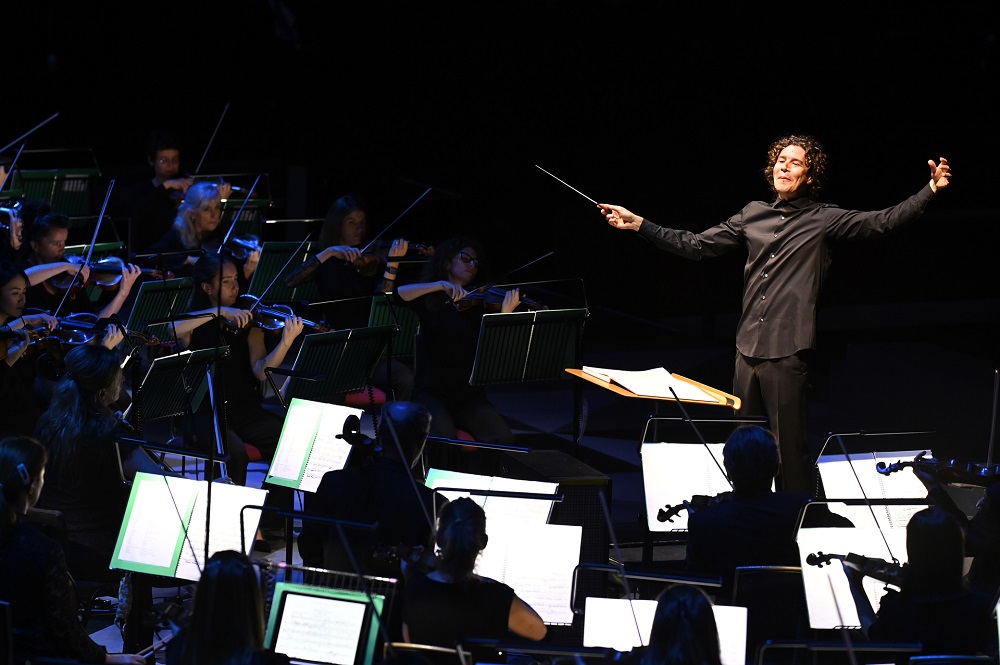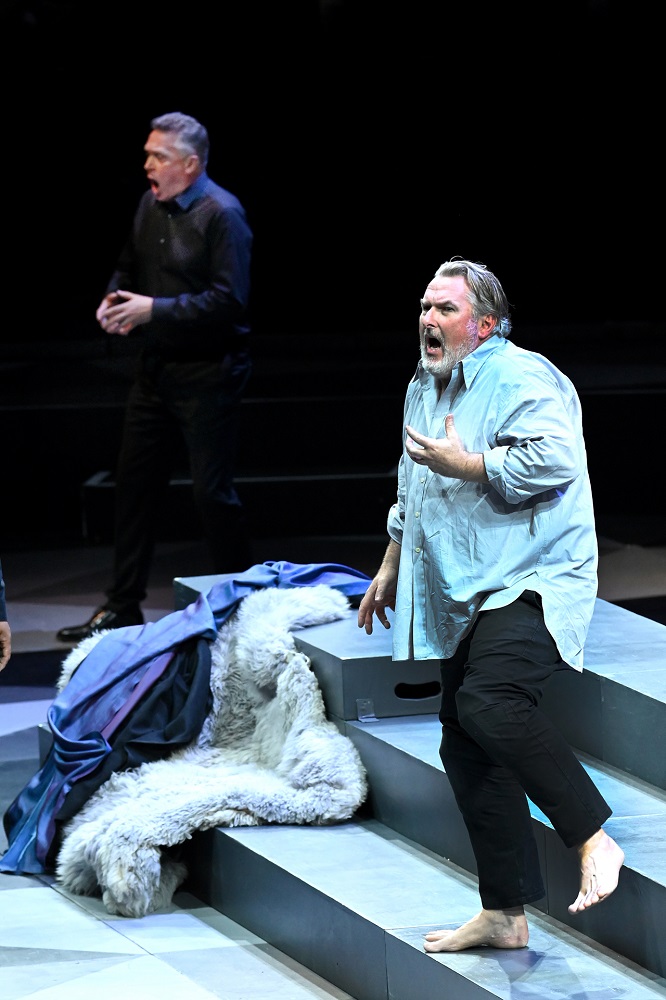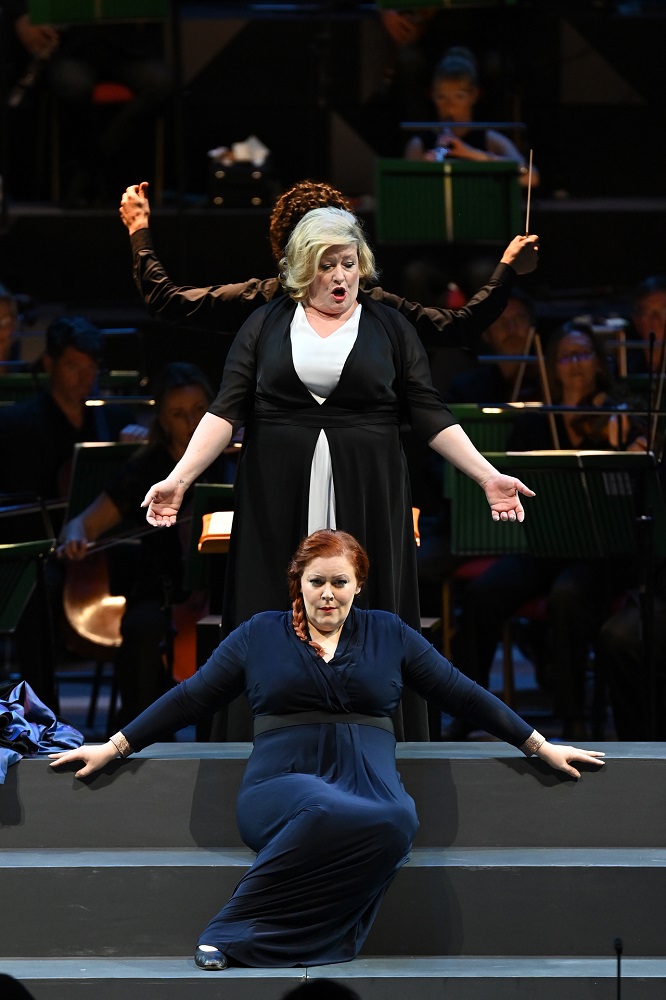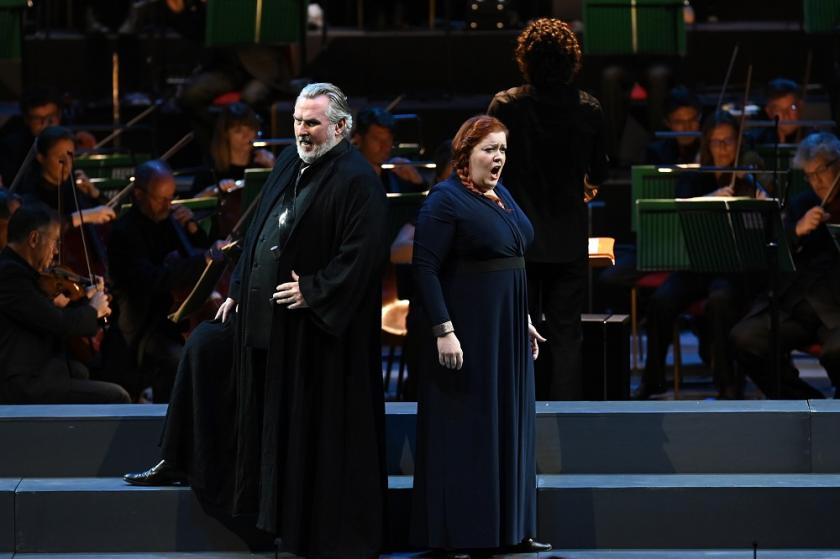“Now I’ve conducted Tristan for the first time,” the 27-year-old Richard Strauss wrote from Weimar to Wagner’s widow Cosima in 1892, “and it was the most wonderful day of my life”. Robin Ticciati, over a decade older but still young in terms of his profession, has just crowned his first run of Glyndebourne Tristans with this Proms performance, and I don’t know whether he felt the same on opening night; but it’s clear that with the house’s latest music director a new golden age of Wagner conducting has begun.
You could sense it in the London Philharmonic Orchestra cellos’ opening tone-swell, the perfect, human pacing of the emotional journey unleashed – an unquenchable love-yearning not to be resolved until nearly five hours later – and the light touches of a performance that always moved forward, but never felt rushed. Different indeed from the equally compelling interpretations of Ticciati's predecessor at Glyndebourne, Vladimir Jurowski, and the slower burn, Toscanini-style, of that other great Anglo-Italian conductor Antonio Pappano. Of course the LPO had to be given full rein in the luminous but tricky acoustics of the Royal Albert Hall – reports of its Glyndebourne position onstage, and behind the action, as here, suggest that the sound didn’t travel so well – and with the singers always with their backs to players and conductor, on the built-out apron of the concert platform, there were other problems live. Not of co-ordination - the mark of the long Glyndebourne rehearsal process with a conductor living the opera in every bar – but of balances in the hall, especially if you were sitting to the sides and voices got lost every time they turned away.
Of course the LPO had to be given full rein in the luminous but tricky acoustics of the Royal Albert Hall – reports of its Glyndebourne position onstage, and behind the action, as here, suggest that the sound didn’t travel so well – and with the singers always with their backs to players and conductor, on the built-out apron of the concert platform, there were other problems live. Not of co-ordination - the mark of the long Glyndebourne rehearsal process with a conductor living the opera in every bar – but of balances in the hall, especially if you were sitting to the sides and voices got lost every time they turned away.
Nor were our lovers especially big and refulgent in voice. Finn Miina-Liisa Värelä is more of a lyric than a high-dramatic soprano, warm in the middle register and intelligent in textual meaning; like many Isoldes, she is better equipped for tender love than the vengeful rage of the first act, where Tristan, the killer of her honourable betrothed Morold, is taking her by ship from Ireland to Cornwall to marry his uncle King Marke.
 Is Tristan a step too far for Simon O’Neill, a tenor who lives more in the head voice than in the baritonal timbre of most interpreters of this insane role who’ve survived the challenges? Last night, it wasn’t clear whether illness or exhaustion saw him conk out before the ultimate challenge of the last act, the proto-Beckett endgame of a man who can’t die from his wound until he’s seen his Isolde again. But three cheers to the Melot and presumably Glyndebourne cover Tristan, Neal Cooper (pictured right with O'Neill in Act Three), who sang Act Three from memory at the side of the stage. He’s performed Tristan in Melbourne, and it’s the kind of reliable voice which makes a performance of the opera possible rather than a flamethrower, but it helped to reinforce the orchestral fever-pitches of a soul nearing death. And with Cooper more in eye-range of Ticciati, you saw the sterling work the conductor does making sure his singers feel supported and together with the orchestra.
Is Tristan a step too far for Simon O’Neill, a tenor who lives more in the head voice than in the baritonal timbre of most interpreters of this insane role who’ve survived the challenges? Last night, it wasn’t clear whether illness or exhaustion saw him conk out before the ultimate challenge of the last act, the proto-Beckett endgame of a man who can’t die from his wound until he’s seen his Isolde again. But three cheers to the Melot and presumably Glyndebourne cover Tristan, Neal Cooper (pictured right with O'Neill in Act Three), who sang Act Three from memory at the side of the stage. He’s performed Tristan in Melbourne, and it’s the kind of reliable voice which makes a performance of the opera possible rather than a flamethrower, but it helped to reinforce the orchestral fever-pitches of a soul nearing death. And with Cooper more in eye-range of Ticciati, you saw the sterling work the conductor does making sure his singers feel supported and together with the orchestra.
If we take the line of Birgit Nilsson, most fearless of Isoldes, that a great singer also has to be a great personality, that would apply more to the lovers’ loyal followers, Karen Cargill as Brangäne and Shenyang’s Kurwenal. Cargill (pictured below with Värelä) has the temperament for the wrathful Isolde, and probably the top notes, too, though like Christa Ludwig she shouldn’t risk it.
 Yet her reactions in the role were riveting, and she offered the evening’s two most beautiful concordances with incandescent orchestral sounds of the evening – the angelic (proto-Elgar Gerontius style) attempts to calm her mistress in Act One, and the warnings of Act Two, heard through the narcotic love-haze from this remarkable carrying voice high at the back of the hall.
Yet her reactions in the role were riveting, and she offered the evening’s two most beautiful concordances with incandescent orchestral sounds of the evening – the angelic (proto-Elgar Gerontius style) attempts to calm her mistress in Act One, and the warnings of Act Two, heard through the narcotic love-haze from this remarkable carrying voice high at the back of the hall.
Veteran bass John Relyea’s Marke provided all you need for the dark-hued tortures of the betrayed king – no problems with projection there – and it seemed, right at the start of the action, that Stuart Jackson’s Young Sailor would provide the most Liederish-perfect of unaccompanied offstage solos, until he had the bad luck to end a semitone sharp. It happens.
There were no such intonation problems with any of the instrumentalists. All the woodwind proved superb vocalists – amazing to hear so much of the flute lines from where I was sitting – but Ticciati made the right accolades at the end to bass clarinettist Paul Richards and cor anglais player Sue Bohling. Hurrah for supertitles, too, all too rare a feature at the Proms. Who knows what other Wagnerian adventures lie ahead for the LPO at Glyndebourne? After this minimal concert staging (Daniel Dooner after the famous Lehnhoff production, reworked by Paul Higgins for the BBC Proms), clearly the priority is a new production of Tristan by a top imaginative director, to build on the infinite hard work and sheer love of a phenomenal score on display here.














Add comment